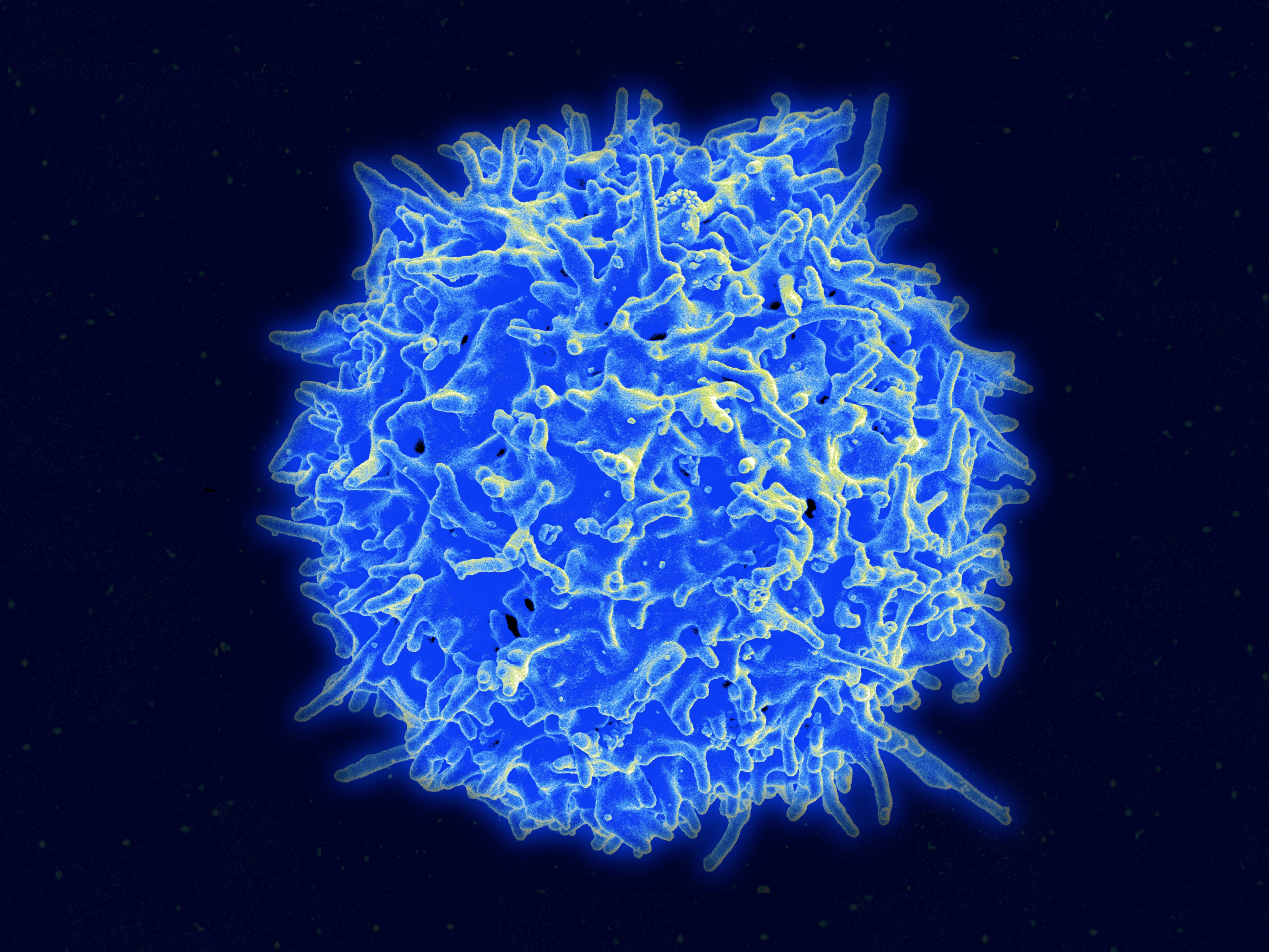
Colourised scanning electron micrograph of a T lymphocyte. Credit: NIAID CC-BY 2.0
Taking out a person’s own immune cells, altering their DNA, and then putting them back in, sounds like the stuff of science fiction.
But, in fact, that’s pretty much what the latest breakthrough in cancer therapy involves – immune cells called T cells are altered so that they will be able to seek out and destroy cancer cells.
The treatment, known as CAR T cell therapy, was shown to be effective against blood cancers in clinical trials, and has just been approved by the Food and Drug Administration in the US specifically for children and young adults who have acute lymphoblastic leukaemia (ALL).
That means patients in the US with this disease who didn’t respond to chemotherapy can now be offered this therapy.
Great! But the decision has also been met with controversy over its effectiveness, side effects and price.
I asked Professor Alan Melcher, Professor of Translational Immunotherapy at The Institute of Cancer Research, London, what he thought of the announcement, what some of the issues with the treatment are…and with the $475,000 price tag, if we can expect the treatment to ever be made available on the NHS.
How significant is this new announcement?
“The FDA’s decision is very significant in the sense that it's the first of its kind, using a patient's own genetically modified immune cells to target their cancer. There's no doubt that CAR T cells can be effective in certain clinical situations and this is one of them.
“It's clearly a very exciting approval for this approach in this particular disease with this particular target, for those that don’t respond to first line treatment. But most young people with B-cell precursor ALL respond fairly well to the conventional treatments that are already available.”
What will it mean for patients with other types of cancers?
“What's less clear at the moment is quite how generalisable this is going to be. There are clear issues around the concept and the practicalities of it,” Professor Melcher explained.
“One of the big uncertainties in this area is whether the CAR T cell approach is going to be more widely useful for solid tumour cancers. With solid tumours you need to choose the right target and you need to ensure that the CAR T cells get into the cancer.”
What about side effects?
“Although the treatment was shown to be very effective in clinical trials, there's no doubt that this approach can be toxic. It's not without risks and in the study on which this approval is based almost half of the patients had severe or life-threatening side effects.”
Research at the ICR is underpinned by generous contributions from our supporters. Find out more about how you can contribute to our mission to make the discoveries to defeat cancer.
What about patients in the UK?
“Before a treatment can be made available on the NHS, it has to be approved by the European Medicines Agency and the National Institute for Health and Care Excellence, known as NICE.
“I think it's quite likely, despite the restrictions that I've alluded to in this particular indication, that European agencies will follow this lead from the FDA.
“However, the $475,000 price tag is a concern. It remains to be seen whether the NHS will be able to foot the bill.”
Hope for the future
I don’t think there’s any doubt that CAR T cell therapy is a genuine medical breakthrough. Innovative new treatments like this come at a price, but with pharmaceutical companies rumoured to be investing collectively around $3 billion into research in this area, more competition between companies and the inevitable technological advances that will follow should bring the price down.
For example, an ‘off the shelf’ strategy – using pre-prepared T cells instead of personalised therapy – could bring down the cost. Or more efficient DNA editing techniques. Methods of managing side effects should also emerge, and the researchers will look to answer the question of whether the therapy can ever be used to treat solid tumours will.
I think we can expect much more from CAR T cell therapy in the future.
